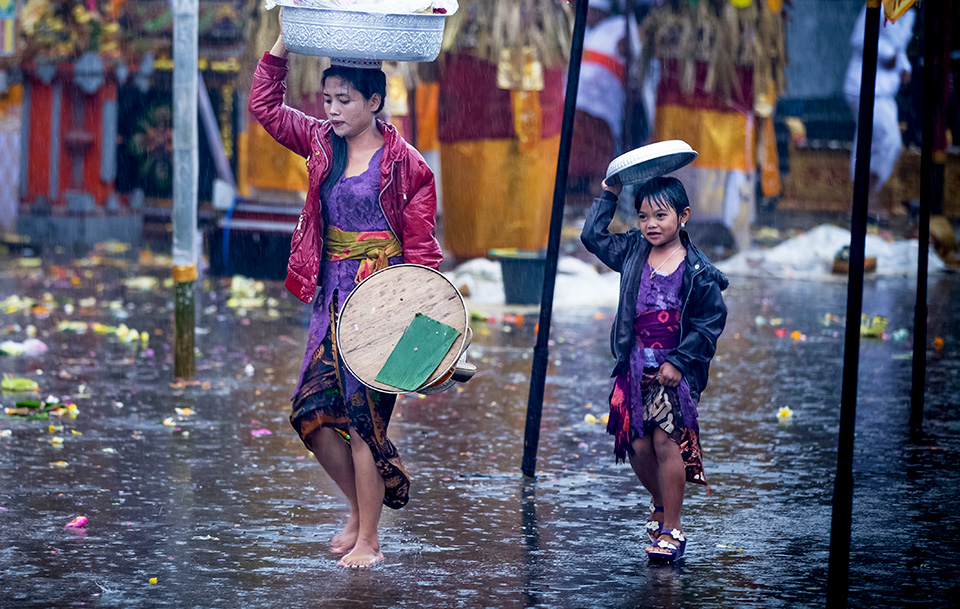Paquita’s Blog
Let Indonesia’s Children Just Be Children
Date: Friday, January 3, 2020
Author: Paquita Gadin Aulia Darmawan

2019 is coming to an end and so is the decade. It’s such an inspiring and hopeful time to be a woman. During the year, in the U.S., NASA had its very first all-women spacewalk; women in Saudi Arabia were given the right to drive without a male companion in the car; Swedish teenage climate activist Greta Thunberg was chosen Time magazine’s Person of the Year; and on a lighter note, Billie Eilish became the youngest person ever to be get six Grammy Awards nominations.
But while the world is now a much better place to be a woman, Indonesia still isn’t the kindest place for us.
Indonesia is still a developing country, so we have very noticeable social gaps. Inequality means many people still don’t have a proper education and sadly, that affects the way they perceive women. Religious notions and practices also affect way of life. Because of the culture and the lack of education, the idea that women depend on men for their lives still thrives.
The result of all this is that families in Indonesia still condone and promote child marriage. According to UN Women figures in 2017, there were almost 750 million Indonesian females who had married before they turned 18. According to United Nations Children’s Fund, Indonesia has the eighth-highest number of child marriages in the world: 1,459 million.
In 2017, Statistics Indonesia reported that 25.71 percent of females in Indonesia aged 20-24 had married before turning 18. Among the 34 provinces, Kalimantan had the highest percentage: 29.53 per cent. From this data, the Indonesian Women’s Coalition concluded that 67 percent of the country’s territory was facing a child marriage crisis. Although cases also happen in urban areas, most of them are in rural areas where people don’t have access to a proper education.
This year, the Government raised to 19 the minimum age to legally marry. But that won’t stop those who will just go to a religious official to get their underage daughter married off. It should also be noted that most of the victims are either pregnant before marriage or are wedded off so their families can relieve a financial burden.
If our culture continues to treat child marriage as “normal’, a lot of children won’t be able to experience a truly normal childhood and won’t get a chance to have a good future. Child marriage can also result in cervical cancer, and in death during childbirth because a child’s body isn’t ready to conceive. It saddens me deeply to think that someone younger than me is being forced into something that they will have to live with for the rest of their lives and I can’t help them. It shouldn’t be a privilege to just be a child. Didn’t the Beijing Declaration and Platform for Action commit all of us to protect the equality and well-being of all women and girls?
While it’s good to have raised the minimum age for marriage, the Government needs to make greater efforts to prevent child marriage. If the negative effects of the practice are constantly made known in every inch of Indonesia and every child is given an equal chance to have a proper education, I’m sure the number of child marriages will go down. Aside from the Government, others can also help in social media and other campaigns to educate people about this problem.
I am privileged to have grown up in a family with so many powerful women whom I can look up to, so that I can understand that a woman isn’t any less human than a man. It’s an empowering feeling that I wish all my sisters in Indonesia can one day feel. It shouldn’t be a privilege anymore but rather just the way it’s supposed to be. We’re far away now, but I’m sure we will get there one day.

Paquita Gadin Aulia Darmawan lives in South Tangerang city near Jakarta. She is a communication student at Binus University and plans to become a journalist.
Paquita’s social media account::
Instagram: https://www.instagram.com/paquitagadin